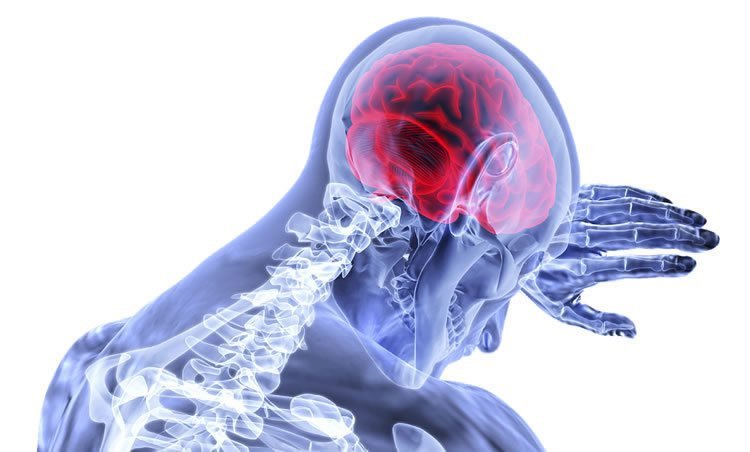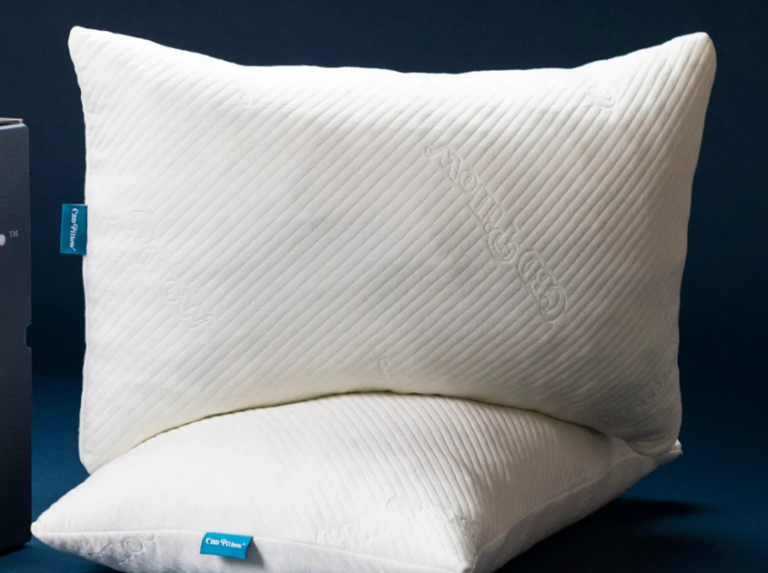Summary: Researchers have pinpointed an effective dose of CBD to help treat chronic pain, without generating the typical marijuana ‘high’.
Source: McGill University.
In the wake of cannabis legalization, a team of scientists at the Research Institute of the McGill University Health Centre (MUHC) and McGill University have delivered encouraging news for chronic pain sufferers by pinpointing the effective dose of marijuana plant extract cannabidiol (CBD) for safe pain relief without the typical “high” or euphoria produced by the THC. The findings of their study have been published in the journal PAIN.
Cannabis indica and sativa are the two main cannabis strains that produce the pharmacological principles known as tetrahydrocannabinol (THC) and cannabidiol (CBD). Dr. Gabriella Gobbi’s team demonstrated that CBD does not act on the CB1 cannabinoid receptors like THC but through the mechanism that binds specific receptors involved in anxiety (serotonin 5-HT1A) and pain (vanilloid TRPV1). Researchers were able to extrapolate the exact dosage of CBD displaying analgesic and antianxiety properties without the risk of addiction and euphoria classically produced by the THC.
“We found in animal models of chronic pain that low doses of CBD administered for seven days alleviate both pain and anxiety, two symptoms often associated in neuropathic or chronic pain,” says first author of the study Danilo De Gregorio, a post-doctoral fellow at McGill University in Dr. Gobbi’s laboratory.
Lead author Dr. Gobbi, a researcher in the Brain Repair and Integrative Neuroscience (BRaIN) Program of the RI-MUHC, sees this as advancement for the evidence-based application of cannabis in medicine with CBD offering a safe alternative to THC and opioids for chronic pain, such as back pain, sciatica, diabetic, cancer and post-trauma pain.

“Our findings elucidate the mechanism of action of CBD and show that it can be used as medicine without the dangerous side effects of the THC,” says Dr. Gobbi, who is also Professor of Psychiatry at the Faculty of Medicine at McGill University and staff psychiatrist at the MUHC. “This research is a new advancement for an evidence-based application of cannabis in medicine.”
Despite widespread public usage, little clinical studies exist on CBD, which became legal in Canada on October 17, 2018, following the passage of Canada’s Cannabis Act.
“There is some data showing that CBD provides pain relief for humans but more robust clinical trials are needed ,” says Dr. Gobbi, a recent grant recipient for her study of the pharmalogical effects of CBD.
About this neuroscience research article
Funding: The study was supported in by Ministère de l’Économie Science et Innovation du Québec, Aurora Cannabis Inc.
Source: Paul Logothetis – McGill University
Publisher: Organized by NeuroscienceNews.com.
Image Source: NeuroscienceNews.com image is in the public domain.
Original Research: Abstract for “Cannabidiol modulates serotonergic transmission and reverses both allodynia and anxiety-like behavior in a model of neuropathic pain” by Danilo De Gregorio; Ryan J. McLaughlin; Luca Posa; Rafael Ochoa-Sanchez; Justine Enns; Martha Lopez-Canul; Matthew Aboud; Sabatino Maione; Stefano Comai; and Gabriella Gobbi in Pain. Published September 28 2018.
doi:10.1097/j.pain.0000000000001386
Cite This NeuroscienceNews.com Article
[cbtabs][cbtab title=”MLA”]McGill University”Cannabis Pain Relief Without the High.” NeuroscienceNews. NeuroscienceNews, 26 October 2018.
<https://neurosciencenews.com/pain-relief-cannabis-10098/>.[/cbtab][cbtab title=”APA”]McGill University(2018, October 26). Cannabis Pain Relief Without the High. NeuroscienceNews. Retrieved October 26, 2018 from https://neurosciencenews.com/pain-relief-cannabis-10098/[/cbtab][cbtab title=”Chicago”]McGill University”Cannabis Pain Relief Without the High.” https://neurosciencenews.com/pain-relief-cannabis-10098/ (accessed October 26, 2018).[/cbtab][/cbtabs]
Abstract
Cannabidiol modulates serotonergic transmission and reverses both allodynia and anxiety-like behavior in a model of neuropathic pain
Clinical studies indicate that cannabidiol (CBD), the primary nonaddictive component of cannabis that interacts with the serotonin (5-HT)1A receptor, may possess analgesic and anxiolytic effects. However, its effects on 5-HT neuronal activity, as well as its impact on models of neuropathic pain are unknown. First, using in vivo single-unit extracellular recordings in rats, we demonstrated that acute intravenous (i.v.) increasing doses of CBD (0.1-1.0 mg/kg) decreased the firing rate of 5-HT neurons in the dorsal raphe nucleus, which was prevented by administration of the 5-HT1A antagonist WAY 100635 (0.3 mg/kg, i.v.) and the TRPV1 antagonist capsazepine (1 mg/kg, i.v.) but not by the CB1 receptor antagonist AM 251 (1 mg/kg, i.v.). Repeated treatment with CBD (5 mg/kg/day, subcutaneously [s.c.], for 7 days) increased 5-HT firing through desensitization of 5-HT1A receptors. Rats subjected to the spared nerve injury model for 24 days showed decreased 5-HT firing activity, mechanical allodynia, and increased anxiety-like behavior in the elevated plus maze test, open-field test, and novelty-suppressed feeding test. Seven days of treatment with CBD reduced mechanical allodynia, decreased anxiety-like behavior, and normalized 5-HT activity. Antiallodynic effects of CBD were fully prevented by capsazepine (10 mg/kg/day, s.c., for 7 days) and partially prevented by WAY 100635 (2 mg/kg/day, s.c., for 7 days), whereas the anxiolytic effect was blocked only by WAY. Overall, repeated treatment with low-dose CBD induces analgesia predominantly through TRPV1 activation, reduces anxiety through 5-HT1A receptor activation, and rescues impaired 5-HT neurotransmission under neuropathic pain conditions.
Feel free to share this Neuroscience News.
Source: neurosciencenews.com






